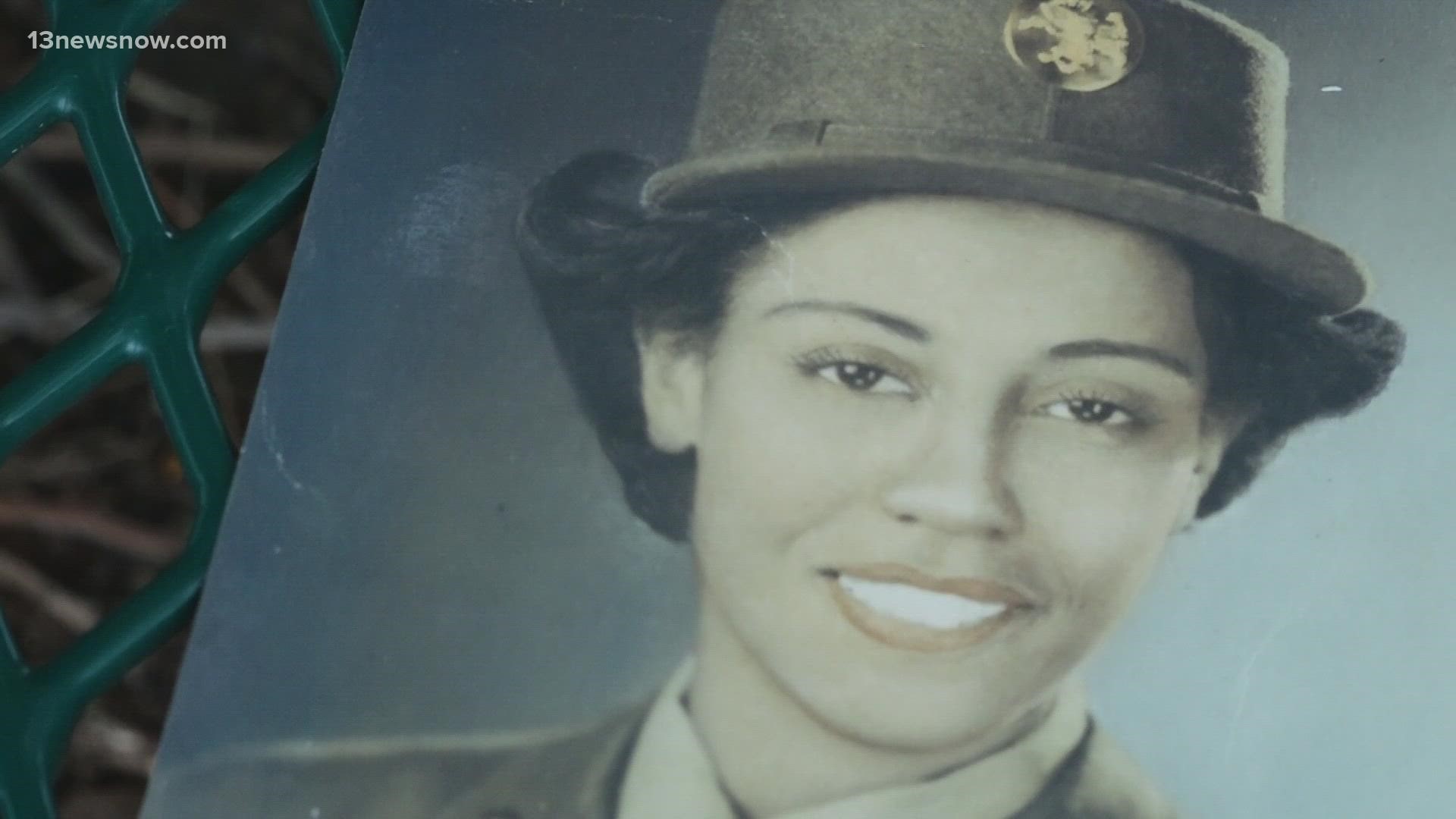PORTSMOUTH, Va. — Anita Fletcher says she always felt close with her mother, Audrey Whitney, growing up. Being an only daughter, Fletcher said forming a special bond was bound to happen.
“Certainly she was my mother... but she was my best friend," Fletcher said.
Fletcher can recall so much about her mom, calling her a stern -- but loyal -- woman. Growing up during the Great Depression, Fletcher said Whitney would collect furniture people would try to throw away and give it away to people in her neighborhood.
"She would give you the shirt off her back," said Fletcher as she sat on a bench in her Portsmouth neighborhood. "That's the kind of person she was."
Fletcher thought she knew everything about the woman who raised her... until just shortly before Whitney passed away after her struggle with Alzheimer's disease.
"She would start talking about her days with women in the war," said Fletcher. “We always knew she was in the military because we had her picture on the wall of our kitchen.”
Fletcher started hearing about a group of women being recognized for their vital role in World War II. She said once she started digging around, she asked her mom if she recognized any of the women in the photos she shared. When Whitney saw the photos, she couldn't stop telling stories of her time in the Army.
That's when Fletcher found out her mother served in an all-Black women’s Army unit, a team in which the members would eventually get recognized as wartime heroes.
The unit was called the 6888th Central Post Directory Battalion, more commonly known as the “Six-Triple-Eight." It was comprised of more than 850 women who went overseas to begin their duties.
Only seven of the women are still alive today.
The unit took their slogan “no mail, low morale” to a new level when they became responsible for single-handedly clearing several years of backlogged mail in Europe between commanders, soldiers, and their families
“You could tell they were strong will.. and they were there for business," said Fletcher as she looked back at the photos. “The officers knew what they needed to have done and it was done beautifully. When you see them in formation, they look better than the men do.”
However, when the war ended, there was no confetti, no welcome home surprise for these women. Their major effort, slipped through the cracks of historic moments, overshadowed by the World War II victory.
“At that time, it wasn’t historic. That didn’t come until years later. For her [Whitney], it was just being in the military," said Fletcher.
Now, decades later, a victory for advocates who fought for this group of women’s recognition for years. Many of the women received ribbons and a statue was made in their honor, but the unit wasn't recognized as a whole until 2019 by the U.S. Senate when it passed a bill to honor each woman with the Congressional Gold Medal.
It's an honor Anita Fletcher said she will make sure her family always remembers.
She currently holds onto old photos of Whitney and her aunts. The photos have writing on the back from her time in the war, some saying "What a shame, but it was worth it" dated back in 1945.
Fletcher said she wishes she could go back in time and ask her other questions about these photos and what she wrote, but she's happy to just have known her as a strong woman.
“I feel so grateful that she even did that, because even though she’s not here anymore to receive her medal, it’s going to go down in my family for ages and ages and generations, because it means so much... it really does," Fletcher said, nodding her head.
Alzheimer's pulled Fletcher and Whitney apart, just short of Whitney's 95 birthday. However, Fletcher said this gold medal makes her feel even closer to her mother after her passing.
“I would say to my mom, 'I didn’t know all these things about you, but it’s beautiful.'”
Now, it's the race against time. The House of Representatives is still working to get all 855 members or their families, the U.S. Congressional gold medal. The government also needs more co-sponsors from other states, but a few state leaders have yet to respond to get every woman the medal.

